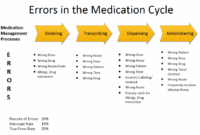How Solicitors Can Help in Delayed Diagnosis Cases: Imagine the devastating impact of a delayed diagnosis—missed opportunities for timely treatment, prolonged suffering, and potentially irreversible damage. This isn’t just a medical tragedy; it’s often a legal one. When medical negligence leads to a delayed diagnosis, skilled solicitors are crucial in navigating the complex legal landscape, securing justice, and obtaining the compensation you deserve. This guide unveils the vital role solicitors play in these challenging situations, exploring the legal process, evidence gathering, and ultimately, achieving positive outcomes for those affected.
Delayed diagnosis cases encompass a broad spectrum of medical conditions, from cancer and heart disease to neurological disorders and birth injuries. The legal grounds often center on negligence—a failure to provide the expected standard of care—resulting in a delayed or missed diagnosis. Solicitors meticulously investigate these cases, gathering medical records, expert opinions, and witness statements to build a robust legal case. Their expertise ensures that victims receive the compensation they are rightfully entitled to, encompassing financial losses, pain, suffering, and loss of future opportunities. Understanding the process is critical, and this guide will provide the clarity you need.
Types of Delayed Diagnosis Cases Solicitors Handle: How Solicitors Can Help In Delayed Diagnosis Cases

Solicitors specializing in medical negligence frequently handle cases involving delayed or missed diagnoses, leading to significant harm for patients. These cases span various medical specialties and often involve complex medical evidence. Understanding the types of cases, legal grounds, and successful outcomes is crucial for both patients and legal professionals.
Examples of Medical Conditions
Delayed diagnosis claims commonly involve serious conditions where early intervention significantly improves prognosis. Examples include cancer (breast, lung, bowel, etc.), cardiovascular diseases (heart attacks, strokes), neurological conditions (multiple sclerosis, brain tumors), and infections (meningitis, sepsis).
Legal Grounds for Claims
The most common legal grounds for delayed diagnosis claims are negligence and breach of duty. Negligence involves a failure to provide the standard of care expected from a reasonably competent medical professional, resulting in harm to the patient. Breach of duty refers to the violation of a legal obligation owed to the patient, leading to foreseeable harm.
Case Studies Illustrating Successful Outcomes, How Solicitors Can Help in Delayed Diagnosis Cases
Successful outcomes have been achieved across various medical specialties. For instance, a case involving a delayed breast cancer diagnosis might demonstrate a successful claim based on evidence of negligent radiological interpretation and subsequent delay in treatment, leading to a more advanced stage of cancer at diagnosis and reduced life expectancy. Similarly, a case involving a delayed diagnosis of appendicitis could showcase the solicitor’s success in proving negligence due to inadequate clinical examination and lack of timely surgical intervention, resulting in severe complications.
Examples of Successful Delayed Diagnosis Cases
| Medical Condition | Type of Negligence | Typical Damages | Example Case Summary |
|---|---|---|---|
| Breast Cancer | Negligent radiological interpretation | Pain and suffering, loss of earnings, cost of future care | A radiologist failed to identify a suspicious lesion on a mammogram, leading to a delay in diagnosis and treatment. The patient experienced significant physical and emotional distress, and required extensive surgery and chemotherapy. The solicitor secured substantial compensation for pain and suffering, loss of earnings, and future medical expenses. |
| Appendicitis | Failure to perform timely surgery | Medical expenses, lost wages, pain and suffering | A patient presented with classic symptoms of appendicitis but was discharged without appropriate investigation or treatment. The delay resulted in a ruptured appendix and subsequent peritonitis, requiring extensive surgery and prolonged hospitalization. The solicitor successfully argued that the physician’s negligence directly caused the patient’s severe complications, leading to a significant compensation award. |
| Stroke | Failure to recognize and treat stroke symptoms promptly | Loss of earnings, cost of rehabilitation, care costs | A patient presented to the emergency department with stroke symptoms, but these were not properly diagnosed and treated. The delay resulted in significant neurological damage, requiring long-term rehabilitation and care. The solicitor successfully demonstrated negligence, highlighting the missed opportunities for early intervention and resulting permanent disability. Compensation covered lost wages, rehabilitation costs, and ongoing care expenses. |
| Lung Cancer | Failure to investigate persistent cough and shortness of breath | Pain and suffering, loss of earnings, cost of palliative care | A patient complained of persistent cough and shortness of breath, but these symptoms were not thoroughly investigated, leading to a delayed lung cancer diagnosis. The solicitor successfully argued that the physician’s negligence in failing to conduct appropriate investigations contributed to a later-stage diagnosis and reduced survival prospects. The award compensated the patient for pain and suffering, lost income, and the costs of palliative care. |
Establishing Negligence in Delayed Diagnosis Cases
Establishing negligence in delayed diagnosis cases requires proving several key elements. This involves demonstrating a breach of duty of care, establishing causation, and quantifying the damages suffered by the patient. Expert medical testimony plays a crucial role in this process.
Legal Burden of Proof
The claimant (the patient) bears the burden of proving, on the balance of probabilities, that the defendant (healthcare professional or institution) owed them a duty of care, breached that duty, and that the breach caused them harm. This is a high standard of proof, requiring compelling evidence.
Navigating the complexities of delayed diagnosis cases requires expert legal guidance. Solicitors can fight for your compensation, ensuring you receive the justice you deserve. This is especially crucial when considering the devastating consequences, such as those detailed in this article on Your Rights When Wrong Prescriptions Lead to Serious Injuries , which highlights how medical negligence can lead to severe outcomes.
Ultimately, securing the right solicitor is key to maximizing your chances of a successful claim for delayed diagnosis cases.
Role of Expert Medical Witnesses
Expert medical witnesses are essential in establishing causation. These experts review medical records, compare the defendant’s actions to accepted medical standards, and provide opinions on whether the delay in diagnosis caused or contributed to the patient’s harm. Their testimony is critical in persuading the court.
Obtaining and Reviewing Medical Records
Solicitors meticulously obtain and review all relevant medical records, including GP notes, hospital records, test results, and specialist consultations. Thorough review identifies inconsistencies, omissions, and potential evidence of negligence.
Key Elements to Prove
To establish a successful claim, the following elements must be proven: a duty of care was owed to the patient; this duty was breached; the breach caused the patient harm; and the harm resulted in quantifiable damages.
The Role of Solicitors in Gathering Evidence
Solicitors play a pivotal role in gathering and presenting evidence in delayed diagnosis cases. Their expertise ensures a comprehensive and legally sound presentation of the case.
Methods of Evidence Collection and Analysis
Solicitors utilize various methods, including obtaining and reviewing medical records, interviewing the patient and witnesses, and commissioning expert reports. They analyze the evidence to identify patterns, inconsistencies, and areas requiring further investigation.
Interaction with Medical Professionals
Solicitors communicate with medical professionals, including the defendant’s medical team, to obtain clarification, additional information, and potentially challenge their actions or opinions. This often involves formal requests for information and potentially expert witness interviews.
Navigating the complexities of delayed diagnosis cases requires expert legal guidance. Solicitors can help you understand your rights and pursue compensation, especially when medical negligence is involved, such as prescription errors leading to serious complications. If you’ve suffered due to a prescription mistake, learn more about your options by checking out this crucial resource: What to Do When Prescription Errors Cause Complications.
Ultimately, securing legal representation is vital in maximizing your chances of a fair outcome in delayed diagnosis claims.
Securing Witness Statements
Solicitors obtain witness statements from the patient, family members, and other healthcare professionals who may have relevant information. These statements provide firsthand accounts and support the overall narrative of the case.
Step-by-Step Guide for Evidence Gathering
- Initial client consultation and case assessment.
- Obtaining all relevant medical records.
- Reviewing medical records and identifying potential areas of negligence.
- Commissioning expert medical reports.
- Gathering witness statements from the patient and other relevant individuals.
- Preparing a comprehensive case file.
Calculating Compensation in Delayed Diagnosis Cases
Compensation in delayed diagnosis cases aims to fairly compensate the patient for all losses suffered as a direct result of the delayed diagnosis. Several factors influence the final amount awarded.
Factors Considered in Calculating Compensation
The calculation considers various factors, including the severity and nature of the injury or illness, the extent of pain and suffering, loss of earnings, cost of future medical care, and any loss of amenity (reduction in quality of life).
Types of Damages Awarded

Damages awarded can include general damages (pain and suffering, loss of amenity), and special damages (medical expenses, lost earnings, future care costs). The amount awarded varies greatly depending on the specifics of each case.
Hypothetical Case Scenario and Compensation Calculation
Consider a case where a patient experienced a 6-month delay in diagnosing breast cancer, leading to a more extensive surgery, chemotherapy, and ongoing psychological distress. Compensation would include costs for surgery, chemotherapy, psychological therapy, loss of earnings during treatment and recovery, and compensation for pain and suffering and loss of amenity.
Factors Influencing Compensation Amount
- Severity of the injury or illness
- Length of the delay in diagnosis
- Extent of pain and suffering
- Loss of earnings
- Cost of future medical care
- Loss of amenity
- Age and life expectancy of the patient
The Legal Process and Timelines

The legal process for delayed diagnosis claims involves several stages, from initial consultation to potential appeal. Timelines can vary significantly depending on the complexity of the case and the court’s workload.
Stages of Bringing a Claim
The process typically includes initial consultation, investigation and evidence gathering, pre-action protocol, court proceedings (if necessary), and settlement or judgment.
Typical Timeframe for Resolving Cases
Cases can take several years to resolve, often due to the complexity of medical evidence and the need for expert reports. Settlement negotiations may take months or even years to conclude.
Options if a Case is Not Settled Out of Court
If a settlement cannot be reached, the case proceeds to trial. The court will hear evidence from both sides and make a judgment on liability and damages.
Appeals Process
Either party can appeal the court’s decision if they believe there was an error of law or fact. Appeals processes involve further legal arguments and court hearings.
Illustrative Case Studies: Positive Outcomes
Several successful cases highlight the positive outcomes achieved through diligent legal representation in delayed diagnosis claims. These examples demonstrate the importance of expert legal counsel in securing fair compensation.
Case Study 1: Significant Compensation for Delayed Cancer Diagnosis
In one case, a solicitor secured significant compensation for a client who experienced a 9-month delay in diagnosing colon cancer. The delay resulted in a more advanced stage of cancer at diagnosis, requiring more extensive and invasive treatment. The solicitor successfully argued that the GP’s failure to conduct appropriate investigations directly contributed to the delay and the patient’s subsequent suffering. The compensation covered medical expenses, lost income, pain and suffering, and loss of future earning capacity.
Navigating the complexities of delayed diagnosis cases requires expert legal guidance. Solicitors can help you understand your rights and pursue compensation for medical negligence, ensuring you receive the justice you deserve. Similar situations arise with medication errors, and understanding how to proceed is crucial; for instance, check out this comprehensive guide on How to Handle a Medication Error Case to learn more about navigating those legal challenges.
Ultimately, securing legal representation is vital in both delayed diagnosis and medication error cases to protect your interests and maximize your chances of a successful outcome.
Case Study 2: Successful Outcome Through Expert Medical Testimony
Another successful case involved a delayed diagnosis of multiple sclerosis. The solicitor’s expert medical witness provided compelling evidence that the neurologist’s failure to order appropriate diagnostic tests led to a significant delay in diagnosis and treatment, resulting in irreversible neurological damage. The expert testimony played a crucial role in persuading the court to award substantial compensation for the patient’s ongoing disability and care needs.
Illustrative Image of a Successful Delayed Diagnosis Claim
Imagine a flowchart depicting the stages of a successful delayed diagnosis claim. The flowchart would start with the patient’s initial symptoms and medical consultations, progress through the stages of evidence gathering, expert testimony, negotiation, and ultimately, a successful court judgment or settlement, resulting in compensation for the patient. Each stage would be clearly captioned to illustrate the process.
Common Mistakes to Avoid
Avoiding common mistakes is crucial for both clients pursuing claims and solicitors handling these complex cases. Understanding potential pitfalls ensures a smoother and more successful process.
Navigating the complexities of delayed diagnosis cases requires expert legal guidance. Solicitors can help you understand your rights and build a strong case, especially when dealing with medical negligence. This often involves understanding related issues, such as those outlined in this informative guide on Common Prescription Errors and How to Claim Compensation , which can significantly impact diagnosis timelines.
Ultimately, securing the right solicitor is crucial for achieving a successful outcome in your delayed diagnosis claim.
Potential Pitfalls for Clients
Clients should avoid delaying seeking legal advice, failing to gather all relevant medical records, and underestimating the importance of expert medical testimony. Early legal consultation is essential to protect their rights and ensure a strong case.
Solicitors play a crucial role in delayed diagnosis cases, navigating complex medical records and building strong arguments for compensation. This expertise extends to other areas of medical negligence, such as those involving prescription drug overdoses, where you might need the specialized legal support found at Legal Support for Overdose Cases Due to Negligence. Ultimately, securing the right legal representation is key to achieving a just outcome, whether it’s a delayed diagnosis or an overdose related to negligence.
Common Mistakes Solicitors Might Make
Solicitors should avoid insufficient investigation, failing to secure expert medical evidence, and neglecting to properly document all aspects of the case. Thorough investigation and meticulous documentation are paramount.
Choosing a Solicitor Specializing in Medical Negligence
Clients should choose a solicitor with proven experience in medical negligence cases, a strong track record of success, and a clear understanding of the complexities involved in delayed diagnosis claims. Solicitors specializing in medical negligence possess the necessary expertise to navigate the legal and medical aspects of these cases effectively.
Questions Clients Should Ask Potential Solicitors
- What is your experience in handling delayed diagnosis cases?
- What is your success rate in these types of cases?
- Who will be handling my case, and what are their qualifications?
- What is your fee structure?
- What is the likely timeframe for resolving my case?
Navigating the complexities of a delayed diagnosis case requires strategic expertise and unwavering dedication. Solicitors provide invaluable support throughout the entire process, from initial consultation and evidence gathering to negotiation and litigation. By understanding the legal framework, the burden of proof, and the various avenues for compensation, you can significantly increase your chances of a favorable outcome. Remember, pursuing a delayed diagnosis claim isn’t just about financial compensation; it’s about achieving accountability and recognizing the profound impact of medical negligence. Don’t hesitate to seek legal counsel—your future well-being may depend on it.
Clarifying Questions
What is the statute of limitations for delayed diagnosis claims?
Statute of limitations vary by jurisdiction and specific circumstances. It’s crucial to seek legal advice promptly to determine the applicable timeframe.
Can I claim compensation for emotional distress caused by a delayed diagnosis?
Yes, compensation often includes damages for pain, suffering, and emotional distress resulting from the delayed diagnosis and its consequences.
How much will it cost to hire a solicitor?
Many solicitors offer “no win, no fee” arrangements, meaning you only pay if they successfully secure compensation. Always discuss fees and payment structures upfront.
What if my claim is unsuccessful?
With a “no win, no fee” agreement, you typically won’t incur legal costs unless the claim is successful. However, it’s vital to discuss potential outcomes and risks with your solicitor.


